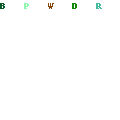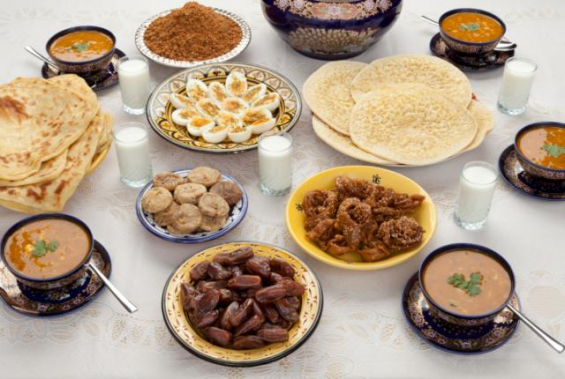Ramadan is an opportunity that presents itself every year for Muslims to fast and go on a somewhat restricted lifestyle. Refraining from eating for several hours - which could reach in some areas of the world up to 14 or even 18 hours - tends to be very similar to a dieting method called Intermittent Fasting. The schedule is a dieting umbrella that consists of skipping meals during the day and fasting for a certain period of time. The technique developed by scientists aims to boost fat loss without affecting lean muscle mass and without the need to restrict severely the calories intake.
According to an article written by Dr Amber Simmons, a nutritionist, and published by EAS Academy, an American sports nutrition and medicine organization, «intermittent fasting is not a diet, but a diet schedule that is purported to accelerate fat loss and muscle growth compared to traditional eating schedules». And as everybody is fasting during Ramadan for religious purposes losing weight can also occur during this 30-day journey. Referring to the same source, fasting «can lead to weight loss».
Originally promoted by the athletic and fitness community through blogs and websites, the practice has gained fame lately with the impressive before and after progress photos circulating on the Internet. Besides, science has proven the benefits of fasting through several publications and experiments : Scientific American stated in an article dedicated to intermittent fasting that «in a 2003 mouse study overseen by Mark Mattson, head of the National Institute on Aging's neuroscience laboratory, mice that fasted regularly were healthier by some measures than mice subjected to continuous calorie restriction». The experiment proved that the mice that were fasting «had lower levels of insulin and glucose in their blood, for example, which signified increased sensitivity to insulin and a reduced risk of diabetes».
How it works
«Religions have long maintained that fasting is good for the soul, but its bodily benefits were not widely recognized until the early 1900s, when doctors began recommending it to treat various disorders—such as diabetes, obesity and epilepsy», the Scientific American indicated. Ramadan is a chance for Muslims around the world to profit from fasting. For this method one can eat whatever they want but in a restricted window of eating. In other words, you can eat only during a certain amount of time and the rest of the day is spent fasting.
 Ph.The Fit Housewife
Ph.The Fit Housewife
The dieting tool allows drinking water, coffee, tea and other unsweetened beverages during the fasting period, as these would technically not remove the body from its fasted state. Intermittent fasting protocols vary from a minimum of 16 hours of fasting up to even longer with 23 hours fast (also known as OMAD – One Meal A Day, in which the dieter would eat only one meal or during only one hour a day) and good news for the followers of the practice : the time you spend sleeping also counts towards your total fasting time !
Tariq, a former obese young man, is a Moroccan adept of Intermittent Fasting and agrees that the method has helped him lose a significant amount of weight. Speaking to Yabiladi, the Casablanca-based young professional explained that «the diet is flexible and suitable for my lifestyle», adding that «the way I practice it is akin to fasting Ramadan : normally I fast 20 hours a day, from midnight to 8 in the evening after work».
Tariq continues «I mostly eat healthy but I eat until I feel full. Intermittent fasting was the easiest dieting method I have ever practiced because as a Muslim I am already introduced to the concept of fasting».





 chargement...
chargement...





 Je ne fais que passer :-''
...
Je ne fais que passer :-''
...


 ...
...
 S'il te reste de la place dans tes geôles, un conseil pour le bien de l'humanité: ranges-y tes jouets et ce gros mytho puis fais fondre la clé
S'il te reste de la place dans tes geôles, un conseil pour le bien de l'humanité: ranges-y tes jouets et ce gros mytho puis fais fondre la clé 
 Aïe âme raie Ali seau riz !
Et merci pour ZE COURT accéléré de Franglish !
Aïe âme raie Ali seau riz !
Et merci pour ZE COURT accéléré de Franglish !

 Je ne parle pas du palmipède, alors n'essaie pas de m'arnaquer
Je ne parle pas du palmipède, alors n'essaie pas de m'arnaquer  ...
...









